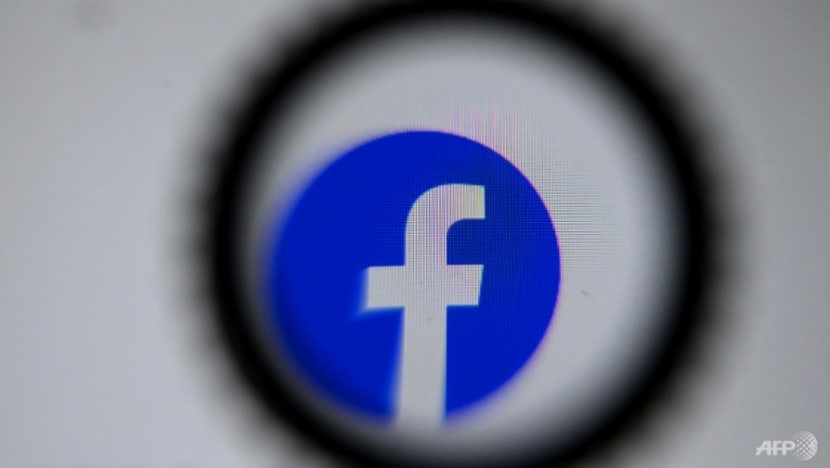Facebook agrees with Singapore Government on tackling foreign interference, but says proposed law worded 'very broadly'

SINGAPORE: Facebook said it shares the same goals as the Singapore Government when it comes to tackling foreign interference, but added that a proposed law on this was worded "very broadly".
"We don't want foreign interference, in particular, covert influence operations, on our platform," Facebook's global head of cybersecurity policy Nathaniel Gleicher told reporters in a call on Tuesday (Sep 28).
"Singapore is one of the first countries to take a legislative approach to tackling this challenge, and as with any new legislative approach, we want to be careful to understand how it's going to work in practice, what its implications will be, what it means for user privacy, for freedom of expression, and for security," he added.
"I think one thing that's worth noting is that the Bill is worded very broadly, and foreign interference as a concept is actually a very broad concept."
This comes after the Government proposed the Foreign Interference (Countermeasures) Act (FICA) in Parliament on Sep 13, aimed at preventing, detecting and disrupting the use of hostile information campaigns by foreign entities intending to interfere in domestic politics.
Some of the measures will allow the Minister for Home Affairs to direct social media platforms to disclose information for the purposes of an investigation before suspected hostile information campaign content is published.
Once this "hostile" content is published, the minister can require social media services to take "practicable and technically feasible" actions to restrict the dissemination of the content, including disabling or limiting functions that allow it to go viral.
Mr Gleicher said on Tuesday that foreign interference as a concept is "very broad".
"You can imagine it covering both a covert operation that misleads people about what's happening and who's behind it, and an open public effort to persuade, being run by an authentic NGO or a community of users," he said.
"Lumping those two things together, I think, is tricky, it can lead to some real challenges.
"So, one of the things we're going to be looking for is exactly how these divisions are broken out (in the Bill)."
Facebook hopes it can find a way of working with the Government that allows the platform to continue meeting its obligations under "laws around the world", particularly on user privacy and disclosure of user data, Mr Gleicher said.
"We also hope that the Government is going to strike a balance with protecting freedom of expression, as we seek to do (in) our work with our policies and enforcement," he added.
Related:
HOW FACEBOOK TACKLES FOREIGN INTERFERENCE
Mr Gleicher said Facebook already does a "significant amount of work" to tackle domestic and foreign influence operations, which it defines as any coordinated effort to manipulate or corrupt public debate to achieve a strategic goal.
For instance, Facebook uses automated systems to detect and block millions of fake accounts every day. For more sophisticated operations, the platform has dedicated investigative teams to "hunt and expose" the actors behind them, Mr Gleicher said.
"Our investigator teams have people from law enforcement, people who've left the intelligence community at different countries, people who were investigative reporters," he said.
"But all of that investigation still takes time."
Facebook said it has taken down more than 150 influence operations in more than 50 countries since 2017, with more than 40 of these operations targeting the Asia-Pacific region. Myanmar (10), Indonesia (six), Pakistan (five) and India (five) were all targeted.
"We actually haven't seen foreign coordinated inauthentic behaviour targeting Singapore," said Mr David Agranovich, Facebook's director of global threat disruption.
"It's not for want of looking. We're constantly looking for these types of operations, constantly monitoring threat actors in the region. And so, it doesn't mean that they don't exist, but that we just haven't seen them. That said, it's certainly a threat that we know we need to be prepared for."
More than 30 of the influence operations also originated in the Asia-Pacific region, with the majority of them "domestic in nature".
"In other words, most of the influence operations that we've seen locally (in Asia-Pacific) were aimed at local audiences, not foreign interference," Mr Agranovich said.
A notable example, Mr Gleicher said, was when Facebook took down an influence operation conducted in the Philippines by a local public relations and marketing firm Twinmark Media, in line with a rising trend of such agencies selling these types of services to domestic or foreign actors.
FACEBOOK WANTS GOVERNMENTS AND TECH COMPANIES TO WORK TOGETHER
Still, the fact that most of the Asia-Pacific operations were domestic in nature means "we need to recognise that it's easy to raise the spectre of foreign interference as a threat, and to go beyond the reality of what we see", said Mr Gleicher.
He stressed that tech companies, governments, civil society and the media need to work together to tackle influence operations, highlighting that one such operation in Europe used more than 300 different platforms to reach its audience.
This is why Facebook enforces against these operations when they are found, announces these takedown actions publicly, and coordinates closely with its partners in industry, civil society and governments around the world, he said.
Going back to Singapore's proposed law on foreign interference, Mr Gleicher said "like all integrity challenges, you have to have everyone working together", and that the question is how each stakeholder can be most effective.
"The question that I always ask when we're looking at legislation is: What does that add to the work that's already being done, how does it improve the community that has already been built to tackle these things," he added.















